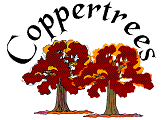Excellence in beauty, electrolysis, aromatherapy, reflexology, and massage in Effingham and East/West Horsley

Frances O'Reilly
SKIN CARE THERAPIST and HOLISTIC THERAPIST
MBABTAC dip CIBTAC ITEC ICA IEB C&G
Effingham / East Horsley
Surrey
KT24 5HE
Surrey
KT24 5HE
Advice for a Healthy Skin
- Eat a balanced diet which includes plenty of fresh vegetables, fruit and fibre. Foods containing vitamins A, B
and C are particularly important for healthy skin. So are proteins and the essential fatty acids:
- Good sources of vitamin A: milk, eggs, butter, margarine, fish oils (for example cod, halibut)
- Good sources of vitamin B: cereals, pulses, meat, milk, wholemeal flour, leafy vegetables
- Good sources of protein: meat, fish, eggs, beans, peas and lentils (pulses), edible seeds, nuts and oil-containing fruit
- Good sources of essential fatty acids: polyunsaturated vegetable and nut oils, soft margarines.
- Drink plenty of water: this helps to maintain a healthy water balance in the body and speeds up the elimination of waste and toxins which can affect the skin.
- Get enough sleep: remember that the rate of skin cell repair and replacement increases when we are asleep. Tiredness and exhaustion deprive the skin of the energy it needs to recover and regenerate.
- Protect the skin: a balanced skin can easily become dry if it is not protected from the weather, extremes of temperature, sunlight, pollution and cosmetics. Wear a moisturiser to create a barrier between the skin and outside elements. Whenever possible, avoid exposing the skin to strong sunlight, otherwise use a suitable ultra-violet screen product.
- Exercise regularly: apart from stimulating the flow of blood and supply of oxygen to the body tissues, regular exercise speeds up cell division and helps to build collagen. Keeping the body fit minimises stress and its effects upon the skin.
- Keep the skin clean: do not allow dirt and grime to build up which could block the pores and irritate the skin. Avoid face touching habits, such as stroking the chin, as you may pass harmful bacteria onto the skin unintentionally.
- Avoid harsh treatment: do not pull or stretch the skin. Be gentle when washing the face and using skincare products. Blood vessels are very near the surface of the skin and can become damaged quite easily. Avoid using perfumed products on facial skin or those with an alcohol or alkaline base which will disturb the pH balance of the skin. The normal pH balance of the skin is between 4.5 and 6.5 which is slightly acidic.
- Avoid junk foods: these foods usually contain a high level of bad carbohydrates, saturated fats and sugar and are not suitable foods for a healthy lifestyle. If you are unable or reluctant to avoid junk foods altogether, limit your intake to a weekly treat and do not binge!
- Do not smoke: as well as being extremely hazardous to general health, smoking produces gases (mainly carbon monoxide and nitrogen oxide) which are carried around the body in the bloodstream in preference to oxygen. As a consequence the cells do not receive enough nourishment. The skin suffers oxygen starvation. Other chemicals produced in the body by smoking interfere with the protein fibres in the skin and deplete the body of vitamin C which is essential for healthy skin.
- Control alcohol intake: alcohol raises the blood pressure and causes the blood capillaries to dilate. Over a period of time this can cause the walls of the capillaries to rupture and become permanently damaged. In the short term, excessive alcohol intake produces chemicals in the body which dehydrate the skin. In the longer term, puffiness of the tissues, coarsening of the skin texture, deepening of lines and wrinkles and chronic redness (red nose) of the skin occur.